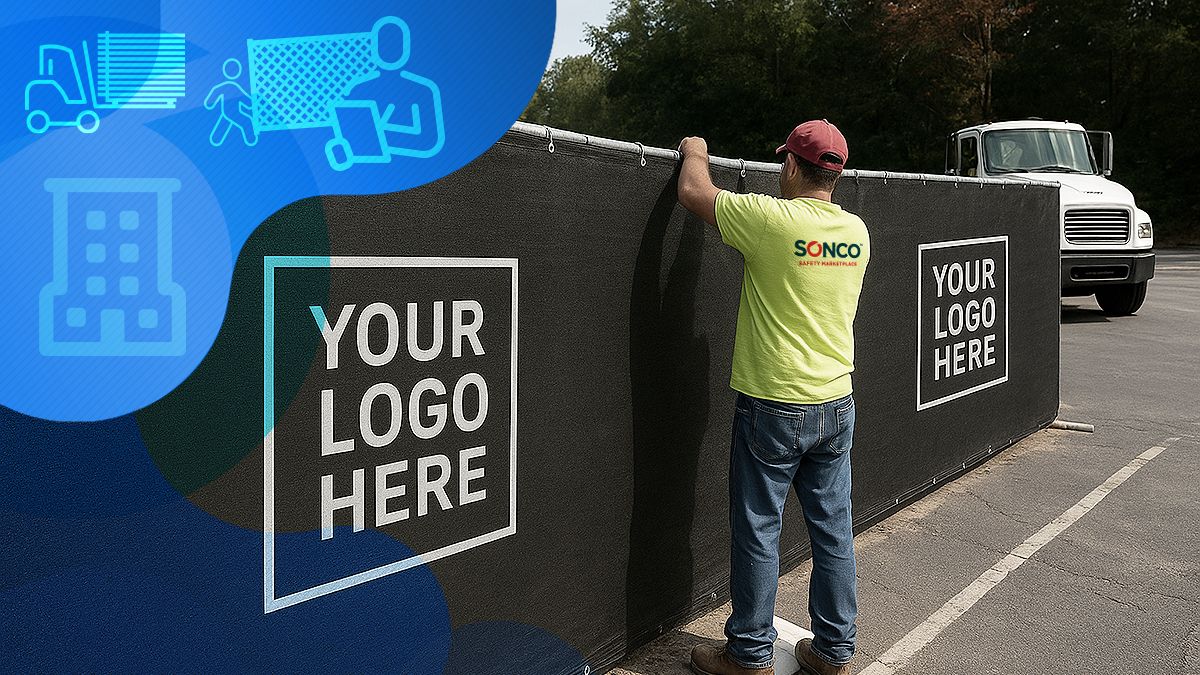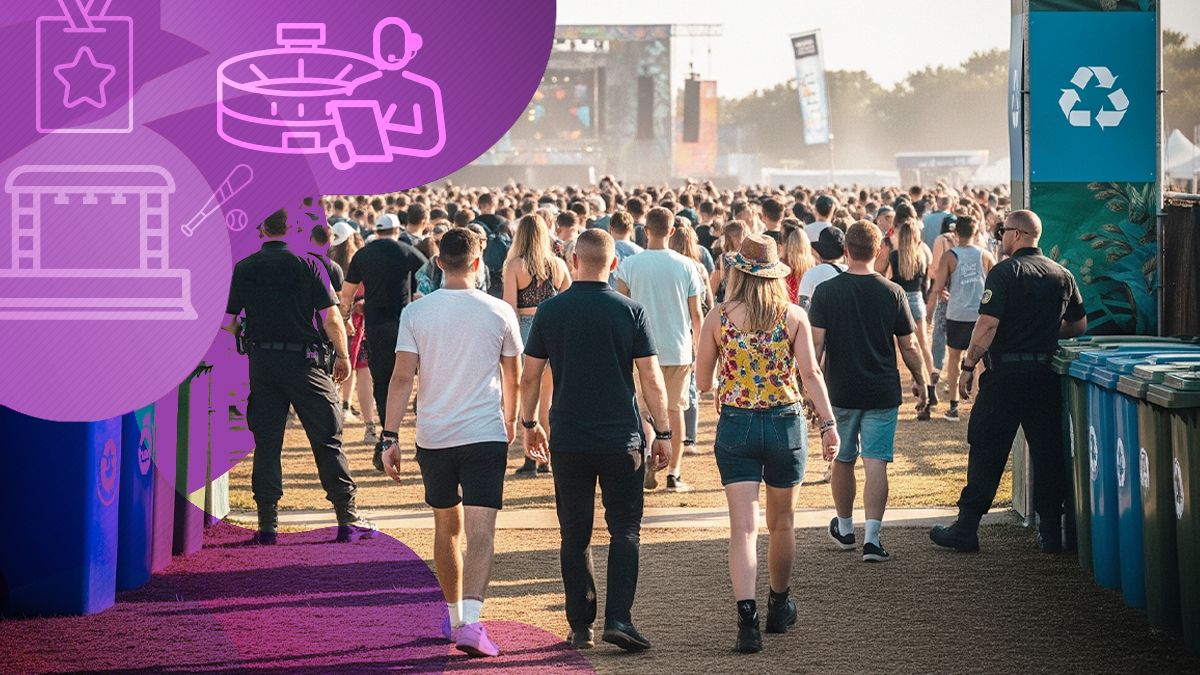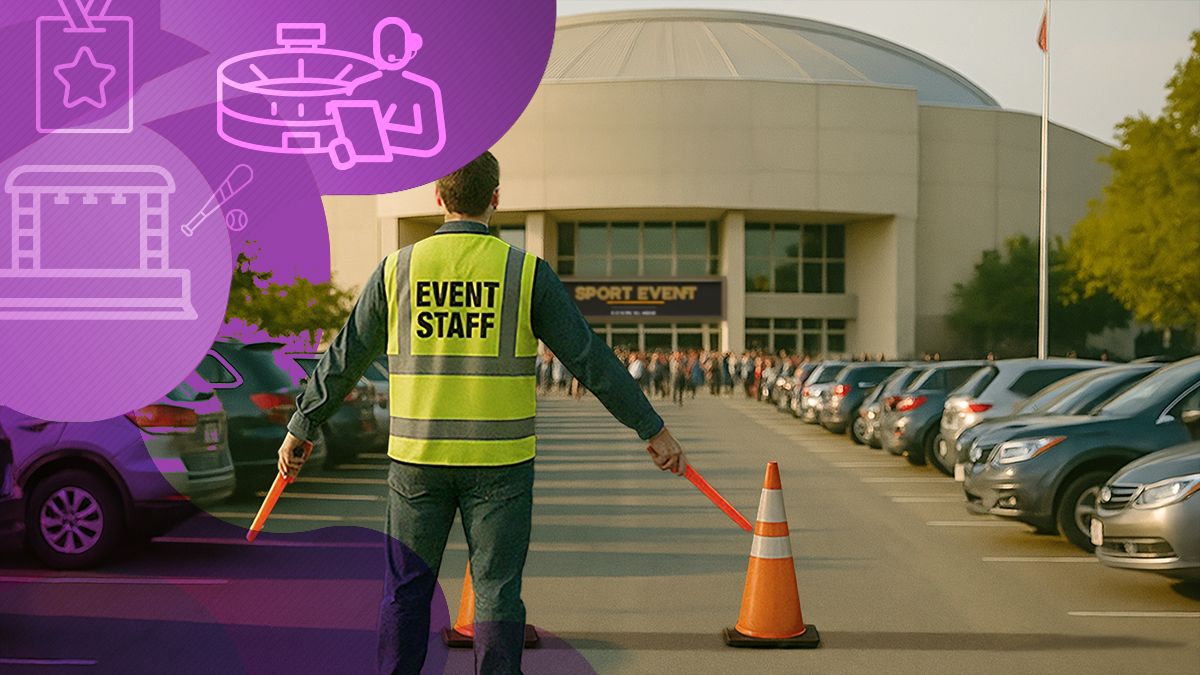How to Plan a Successful and Safe Event
Your ultimate guide to planning successful and safe events, from budgeting to crowd control.

A well-planned event can feel like a magic trick, with enchanted guests left wondering how the team behind it managed to pull it all together.
But successful event planning has nothing to do with magic. It’s about tried-and-true basics like smart budgeting, effective crowd control, and seamless coordination.
It’s also about understanding that efficient event planning happens in stages. In this quick-start guide, we’ll go over a little of everything you need to know about how to plan an event to perfection at every stage.
Define the Goals of The Event
Fantastic events guests will remember for years to come start with a clear vision and specific goals. Start by asking yourself: what is the ultimate objective of your event?
For example, is the goal to support an important product launch or attract new clients? Are you looking to raise awareness of a pet cause or strengthen connections between members of your current team?
You’ll also want to consider your target audience, as their needs and expectations should be at the heart of your event-planning process from start to finish. What are the demographics? Why might a member of your audience choose to attend your event, and what value can they expect to gain by attending?
Setting an Event Budget
When it comes to how to start event planning, working within a well-considered budget from day one is key. Start by putting together a detailed project plan for your event.
List all the steps you’ll need to tackle, including finding a venue, taking care of catering, booking speakers or entertainment, and event marketing.
Then break each large task down into bite-sized milestones and actionable steps. Be sure to include details on which team members have responsibility for which task.
Include potential expenses attached to each task, as well. Note which expenses are fixed and which are variable and be sure to incorporate a contingency fund into your budget to cover unforeseen expenses. (Between 10 and 15 percent is a good amount to set aside for unexpected costs.)
Venue Selection and Layout Planning
Once you’ve got a solid event plan and budget to work from, it’s time to start bringing your vision to life. The venue you ultimately select will affect many other aspects of how the planning process moves forward, so start there. The following are some of the most important factors to consider.


Accessibility
Choose a venue that will be easy for guests to access. Is it close to major transportation routes, as well as public transportation? Will there be ample parking available once they arrive? Does it offer wheelchair access for people with disabilities? Should you implement a shuttle system to help guests navigate larger venues or locations?
Atmosphere
The bigger and more important your event, the more crucial it will be to meet expectations by creating an alluring and appealing ambiance. Choose a venue that suits the atmosphere you want to create, as well as the overall theme and goal of your event.
Accommodation
Appropriate event venues can accommodate the number of attendees you expect and facilitate smooth traffic flow from one area to another. Carefully examine the floor plans of the places you’re considering to ensure this is possible.
At this stage, it's a good idea to start thinking about crowd control logistics. For outdoor venues, establish clear boundaries for the event perimeter. Consider your options when it comes to fencing or security barricades, as well as how you’ll incorporate these items into your layout.
Will you need metal barricades, stage barriers, event-specific fencing, or other unique items? Each event and venue is unique and will have its own specific requirements, so it's important to fully understand your choices and have the right equipment on hand.
Evaluation
Be sure to visit each venue in person to confirm that it meets all of your criteria. Will it be able to provide every amenity you need (e.g., Wi-Fi, multiple stages, and audiovisual equipment)? Is it clean and well-maintained? Can you “see” your event coming to life here?
Developing an Event Timeline
Next step is to plan the event timeline. Create a coordinated schedule that includes all of your speakers, activities, and entertainment options. Be sure to incorporate factors like when meals and other catering options will be served or otherwise made available.
Carefully consider safety factors like event security and crowd management options for each stage within your timeline. What equipment and personnel will you need to keep traffic flowing naturally and safely as guests navigate their way from one gathering spot to the next?


Conclude this stage by assigning responsibility for each portion of your timeline and execution to appropriate team members. Ensure all members of your staff fully understand what’s expected of them and by when.
Communication and Coordination
Communication is the key to ensuring big events run smoothly from start to finish, as well as helping the teams behind them achieve their objectives. Coordinate your efforts with each team member to finalize and confirm each event detail before start time. Examples to consider include:
- Finalizing speakers, entertainment, and other special guests
- Confirming catering options, vendors, support staff, etc.
- Establishing and implementing a plan to keep team members coordinated during the event
How will members of your team keep in contact while the event is in progress, especially while they’re on the go? Consider options like radios, mobile apps, etc. Double-check that all necessary equipment is present and operational before the event. Make sure you include security personnel, hired team members, or volunteers who will also be present.
Consider the details of how you’ll manage the overall guest experience while the event is in progress, as well. Implement planning and allocate staff to ensure guests are warmly greeted, registered, and assisted as needed throughout the event. Successful events leave attendees feeling accommodated and catered to on every possible level.
Contingency Planning
Contingency planning isn’t just important during the budgeting phase of event planning. You and your team should be fully prepared to respond to the unexpected at every stage of the event. Some key factors to consider include, but aren’t limited to:
- Weather-related issues: How will you handle unexpected inclement weather or potential weather emergencies (e.g., floods, tornadoes, or severe thunderstorms)?
- Power outages: Do you have backup power sources, emergency lighting, etc. available and ready to go?
- Fires or gas leaks: Have a plan in place to monitor these critical eventualities as well as safe crowd management and evacuation.
- Security threats: Develop a plan of action in case of security threats like shooters, acts of terrorism, etc. Be sure your choices in crowd management equipment and security assurance can accommodate and respond adequately to these possibilities.
Make sure your entire team is fully prepared for possibilities like these. Give each person procedures on how to spot and handle potential emergencies. Establish a chain of command for communicating possible issues. Schedule drills and run-throughs leading up to your event to ensure a safe, level-headed response when it counts most. Ensure that all safety exists are clear, that doors work and people can exist quickly if necessary.
Crowd Management for Events
Managing large crowds is vital for the safety and success of any event. Staff must be prepared to handle groups effectively and assert authority when needed. Here are some tips for security workers:
- Maintain Order: Monitor registration lines to prevent people cutting in and keep them organized with cones, tape, or stanchions. Ask guests to move if they block exits.
- Enforce Boundaries: Keep guests out of staff-only and VIP areas with clear signage and attentive staff.
- Watch Capacity: Keep the crowd size within the venue's limits, including staff and security personnel. Overcrowding can lead to fines and safety issues.
- Spot Suspicious Behavior: Be alert to unusual actions, such as constant staring at staff, lack of engagement, or surveying the venue layout. These may indicate potential security concerns.


Analyze and Reflect
Wise, thorough event planning doesn’t stop when an event concludes. Ensure the planning process for your next event goes as smoothly as possible by conducting a full post-event analysis.
- Collect feedback from everyone involved in planning and executing your event, as well as the attendees, via surveys, feedback forms, etc. What did they consider most successful about your event? Which areas showed room for improvement?
- Organize and analyze event results. Compare the actual outcome to your initial goals. Did you attract the number of attendees you expected, raise the desired amount of funds, etc.?
- Were there any areas you failed to adequately cover during the planning process? What could you do differently next time to ensure your next event is even more successful?
Ultimately, next-level events are all about delivering a seamless experience for your guests and attendees, as well as your team.
Remember, this is about more than simply ensuring everyone is adequately entertained and that the catering is on point. Thoughtful security measures and non-intrusive crowd management techniques that keep traffic flowing safely and smoothly are also a huge part of creating an all-around fantastic event experience.
Learn more about how to master crowd management for all your most important events today, and take your event planning abilities to the next level!
Trend now

Fence Privacy Screen: The Missed Revenue for Rental Companies
Grow profits by over 100% with fence privacy screens. See the numbers, customer benefits, and how SONCO makes it simple.

Greener Shows, Greater Impact: Sustainability in the Live Music Industry
In a competitive market where experience and perception impacts attendance, sustainability is a business advantage as well as a moral responsibility.

Parking Lot Safety Tips for Venues and Arenas
A safe and efficient parking lot sets the tone for the entire event experience, starting from the moment guests arrive.





